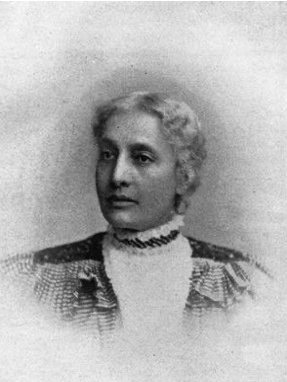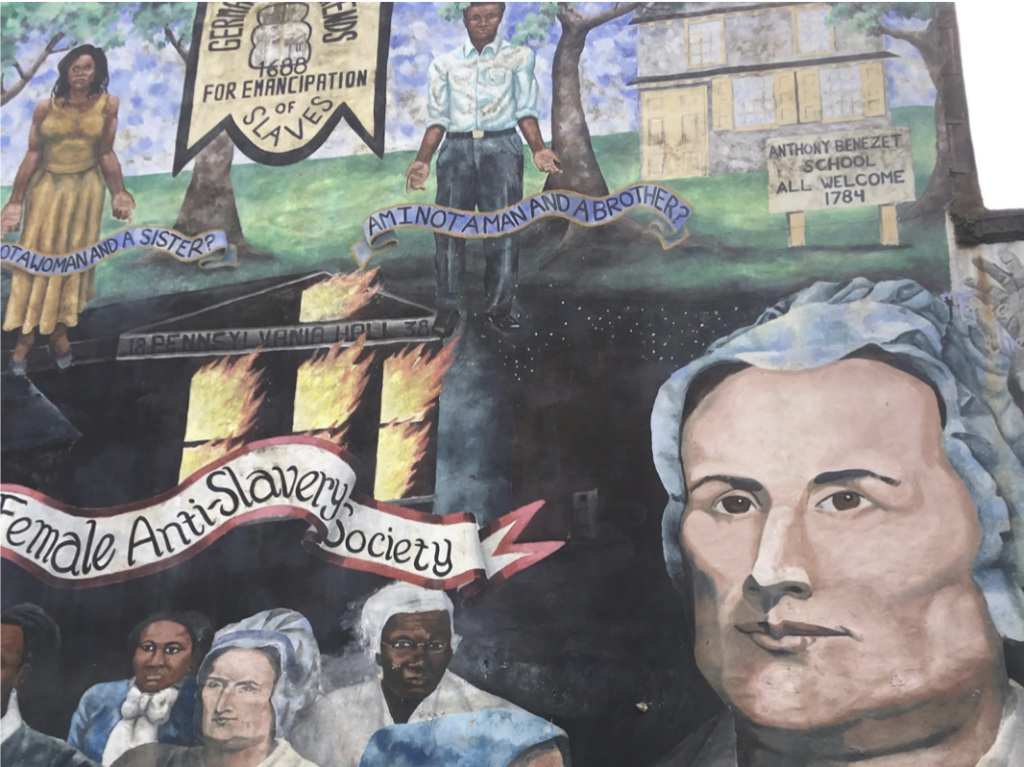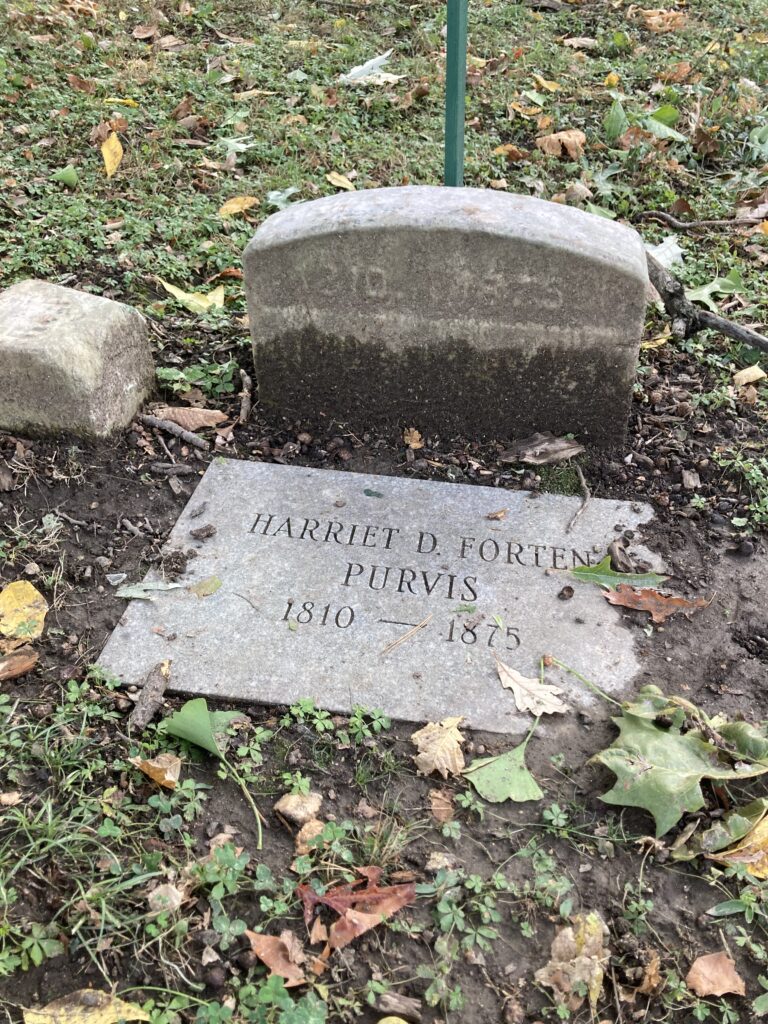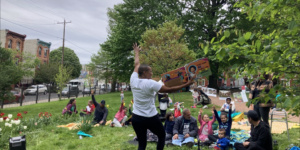by Kate McHale, Quaker Voluntary Service Fellow
Harriet Forten Purvis, an abolitionist and women’s rights activist, is one of the many prominent figures in Philadelphia’s history buried in the Historic Fair Hill burial ground. Harriet was a Black woman from a wealthy family in Philadelphia. Her parents, James and Charlotte Forten, were active in the abolitionist movement, and raised their children to be active in this work. Harriet, her sisters, and her mother were leaders in the Black community of Philadelphia, and were highly involved in the Philadelphia Female Anti-Slavery Society, which brought Black and white abolitionist women together in their work to oppose slavery.

Harriet married Robert Purvis in 1831. He was also part of the Black community in Philadelphia, and with their wealth from both the Forten and Purvis families’, Harriet and Robert were able to provide for their eight children and be pivotal in the abolitionist movement. Robert was nicknamed “the President of the Underground Railroad” as he was chairman of the General Vigilance Committee, and they used the Byberry house that Harriet and Robert lived in as a stop along the Underground Railroad. Along with helping people escaping from enslavement, because the Purvises had the resources to hire a governess, Harriet was able to go to anti-slavery conventions and participate more fully in the abolitionist movement than many other women at the time. Harriet and Robert also frequently entertained other abolitionists at their home, including William Llyod Garrison and John Greenleaf Whittier, who wrote a poem dedicated to Harriet and her sisters.

Harriet’s work also included women’s rights work. The Purvises were close friends with Lucretia and James Mott, abolitionists and women’s rights activists who are also buried at Historic Fair Hill. Lucretia and Harriet were both founders of the Philadelphia Female Anti-Slavery Society. Harriet was part of the group of people organizing the Anti-Slavery Conventions of American Women. The 1838 Convention was especially notable because after the first day, a mob of pro-slavery enthusiasts burned down Pennsylvania Hall, the building that had just been constructed to host abolitionist meetings and was hosting the convention. When the abolitionists sued the city for not trying to stop the fire, the city argued that the abolitionists had incited the riot by holding an event where Black and white people intermingled.

In 1874, Harriet and Robert moved to Washington, D.C. when Robert was appointed commissioner of the Freedmen’s Bank. Harriet died a year later, and was buried in the family plot at the Fair Hill burial ground. Her work for and leadership in abolition and women’s rights was invaluable and had an immense impact on Philadelphia society and beyond.
You can learn more about Harriet’s impact at our upcoming Mural Tour on March 11th. There is also an exhibit on The Forten Family at the Museum of the American Revolution.







